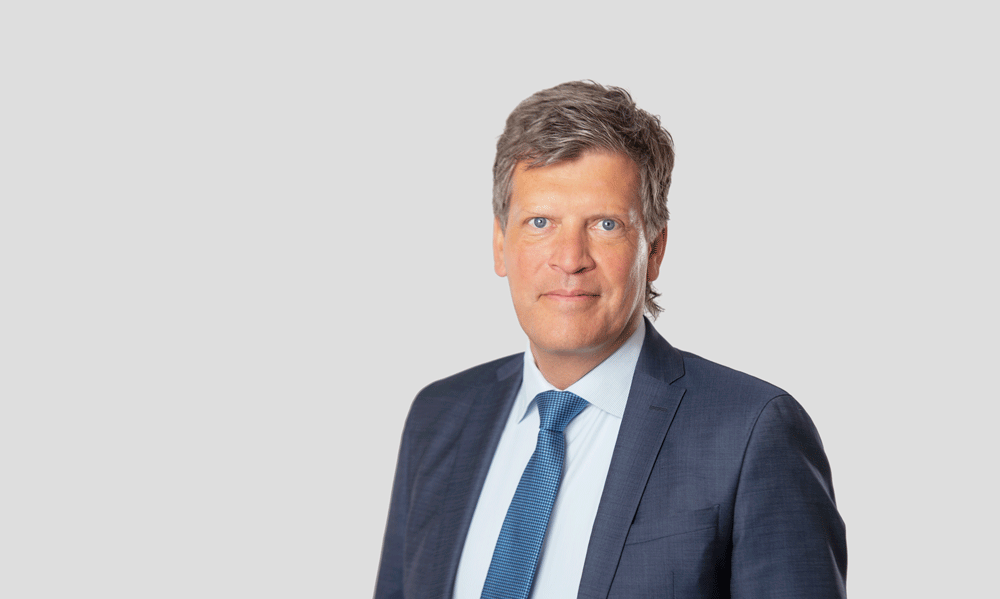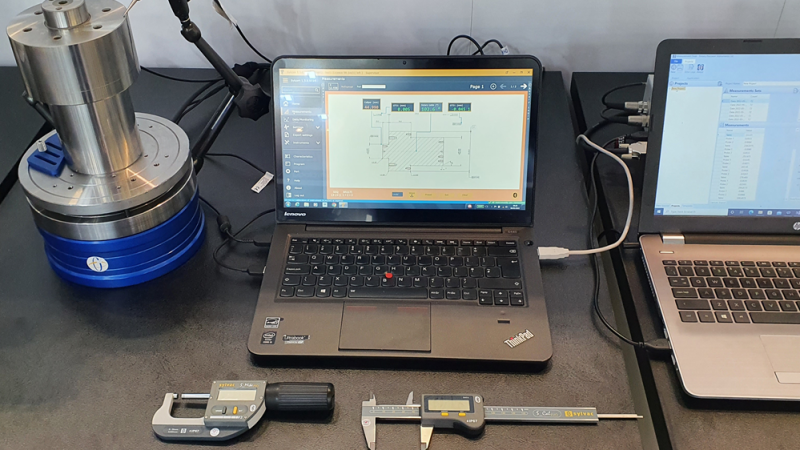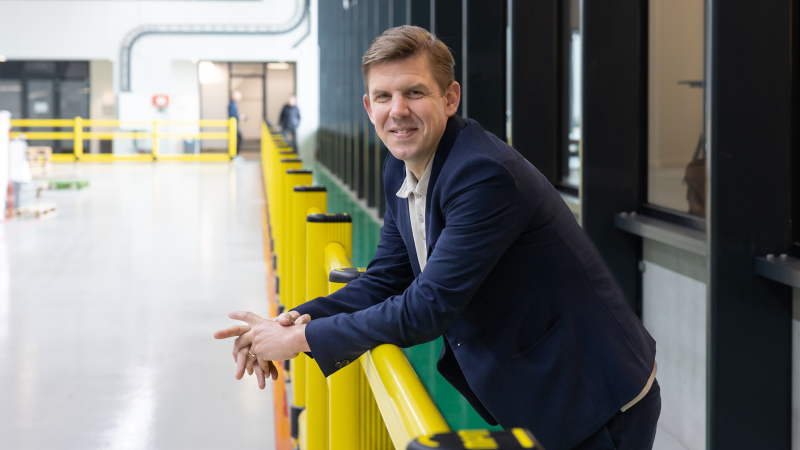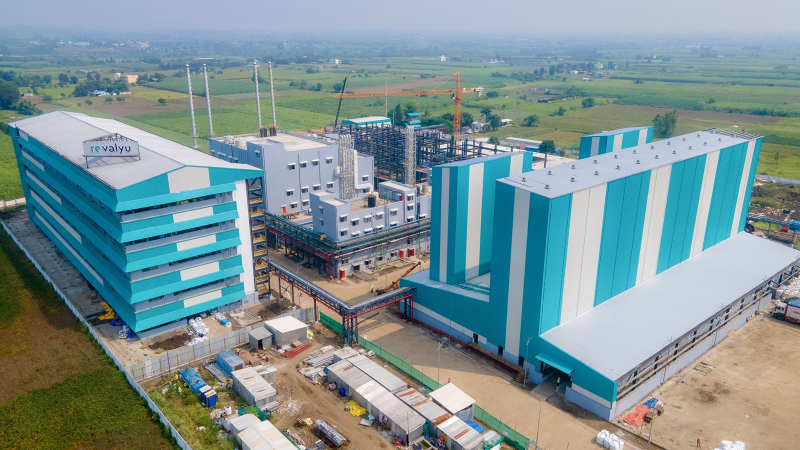APL (Apotek Produktion & Laboratorier AB) is a Swedish state-owned company with a public policy assignment to develop, manufacture and supply unlicensed sterile and non-sterile pharmacy compounding products for patients with additional needs, both as individually tailored extemporaneous medicines and as batch-manufactured stock formulations.
In addition, APL is also an established contract manufacturer in the Life Sciences sector in Scandinavia, providing development and analysis services.
CEO Erik Haeffler explains the company’s background. “Early in the 1970s all pharmacies in Sweden were nationalised and starting in the 1980’s all compounding that took place in individual pharmacies was centralized into what later became APL.”
“With the deregulation of the pharmacy market in 2010 the retail and laboratory manufacturing parts of the centralised organisation were split up and APL became an independent organisation focused on laboratory manufacturing. As a consequence, APL has a dominant position for pharmacy compounding in the Swedish market, with the opportunity to explore new areas and pursue innovative work.”
He points out that the APL’s public policy assignment for pharmacy compounding has recently been extended to include preparedness to continue business as usual during times of crisis and ultimately war.
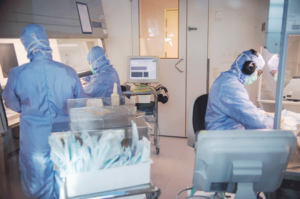 Two business pillars
Two business pillars
Through its social mandate, APL’s task is to develop and manufacture individually adapted medicines for patients with additional needs, such as children who need specific concentrations or flavours, and patients with various difficulties. The operations are carried out in close collaboration with specialists, county councils and public agencies to ensure patients have access to the right treatments.
“These extemporaneous medicines are only prescribed when the physician makes the assessment that there is no suitable commercial product available,” explains Haeffler. “The most common applications are children’s versions of medicines that are normally only available for adults; or products that have been withdrawn from the market, but still have a patient group. Or, in many cases, medicines for which there simply is no commercial market.”
“In many countries in Europe, this type of operation is still performed in the individual pharmacies, while we work on a semi-industrial scale, and can thereby create more efficiency, faster lead times, and serve more patients,” he further points out, noting that APL has in total about 2,000 different standardized, compounded products. Within the company supply model, any of these can be delivered to a patient within a maximum of four days from the first order, which is usually linked to an individual prescription.
APL also plays an important role in alleviating market shortages; this emerged specifically in the post-pandemic environment. “We can temporarily support the market and cover for a registered product by manufacturing a pharmacy-compounded product. This need has increased with the disturbance of the supply and the consequent increased incidents of medicine shortage in the market.”
Haeffler further acknowledges that on the other hand, within its CDMO role, which today represents about one third of the business, the company offers contract development and manufacturing services to biotechnology and pharmaceutical companies, using its resources to develop, manufacture and analyse specialist medicines and other niche products.
“We are helping life science companies, both with analytical development and formulation development, as well as with commercial manufacturing. While the pharmacy compounding covers unlicensed medicines, the products that we manufacture for others are registered medicines with regulatory approval in the countries that we supply to,” he explains.
Personalised medicine
With 500 employees and four manufacturing units in Malmö, Gothenburg, Stockholm and Umeå, APL has built up a very strong ability to adapt medicines to individual needs. Reflecting on market developments, Haeffler affirms that the pharmaceutical sector is slowly but surely moving towards personalised medicines, an area where APL already plays an important role, which is set to grow further.
A recent example of the company’s embracing novel approaches is its partnership with CurifyLabs, a Finnish health-tech company, to personalise medicinal administration with 3D printing. The companies will manufacture personalised medicines with specific dosages and dosage form characteristics for frail and young patients, reducing the risk of serious side effects.
According to APL, its manufacturing method produces around 100 capsules per batch, though 3D printing allows the creation of precise doses, reducing waste generation in the manufacturing process.
Haeffler says: “3D printing is an exciting technology which shows significant promise in extemporaneous manufacturing. We have got the first printer already, with the second on its way. We’ve done the first test manufacturing, and the target is to reach patients with this technology in 2025.”
“For the type of products that we are manufacturing within the extemporaneous medicine (i.e. compounding) part of the business, 3D printing technology opens up new applications and different ways of doing things. The fact that the manufacturing becomes automated also creates other possibilities, reducing potential risk for operators when working with toxic substances,” he says, reflecting that in the future, this technology may ultimately become applicable also in contract manufacturing.
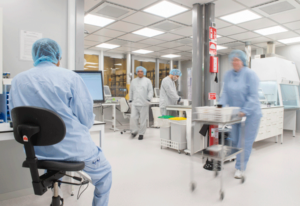 Expanded capacities
Expanded capacities
Haeffler further points out that as APL’s public policy assignment has been extended and with the growing CDMO part of the business, the company needs to adjust its capacities. To this end, APL is now building a new compounding department in Stockholm, to replace the existing one, which is now 40 years old.
Last year the company inaugurated a new facility in Gothenburg for the manufacture of sterile extemporaneous drugs, consisting of modern premises with new clean rooms and newly installed and validated equipment, and in 2024, APL is committing 40 million SEK to establish a new sterile pharmaceutical production line at its Umeå site.
This strategic move is both a response to new manufacturing regulations and an enhancement of the plant’s output capabilities, including the acquisition of new machinery and the construction of additional facilities, says Haeffler. “The demand for sterile drugs within our contract manufacturing operations is robust. This investment modernizes our facility and significantly expands our capacity, enabling us to accommodate more clients.”
Speaking about the future, he points out that the company already plays a significant role in the Nordics with its specialized capability and is now actively trying to seize growth opportunities further afield, expanding its customer base.
